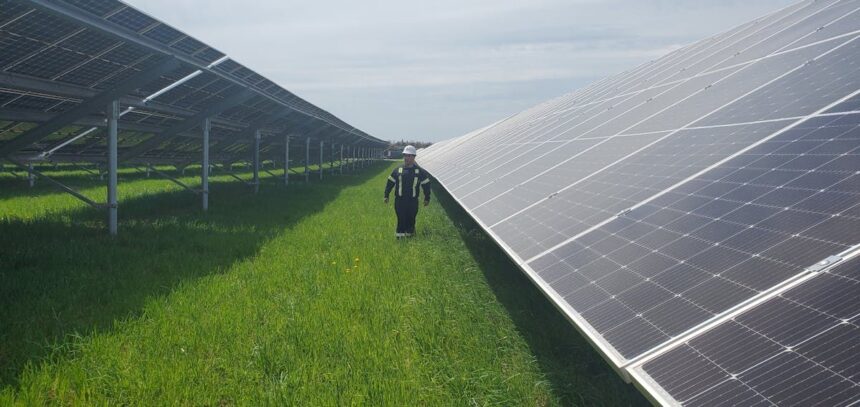Many rows of panels make up the City of Summerside’s solar power farm, an example of renewable energy in P.E.I. that could be expanded instead of giving into Maritime Electric’s demands for more fossil fuel power. Photo by Colin MacLean /Journal PioneerArticle contentThe recent Doane Grant Thornton energy review, commissioned by the P.E.I. government and released in August 2025, should alarm Islanders and Canadians alike. Despite widespread calls for a publicly owned energy utility, the report flatly rejected the idea. Instead, it endorsed Maritime Electric’s plan to spend $334 million on new diesel combustion turbines — locking Islanders into fossil fuels and forcing ratepayers to shoulder 7 to 8 per cent higher bills, all while profits flow to Fortis Inc. shareholders.THIS CONTENT IS RESERVED FOR SUBSCRIBERS ONLY.Subscribe now to access this story and more:Unlimited access to the website and appExclusive access to premium content, newsletters and podcastsFull access to the e-Edition app, an electronic replica of the print edition that you can share, download and comment onEnjoy insights and behind-the-scenes analysis from our award-winning journalistsSupport local journalists and the next generation of journalistsSUBSCRIBE TO UNLOCK MORE ARTICLES.Subscribe or sign in to your account to continue your reading experience.Unlimited access to the website and appExclusive access to premium content, newsletters and podcastsFull access to the e-Edition app, an electronic replica of the print edition that you can share, download and comment onEnjoy insights and behind-the-scenes analysis from our award-winning journalistsSupport local journalists and the next generation of journalistsRegister to unlock more articles.Create an account or sign in to continue your reading experience.Access additional stories every monthShare your thoughts and join the conversation in our commenting communityGet email updates from your favourite authorsSign In or Create an AccountorArticle contentArticle contentThis is a textbook example of why waiting for private utilities to act in the public interest is fool’s play. Their priority is not climate resilience or energy affordability — it is profit. At a time when climate collapse is accelerating, Islanders are being told to pay more for a deeper dependence on fossil fuels.Article contentArticle contentArticle contentPublic ownershipArticle contentThe case for public energy ownership could not be clearer. When utilities are in public hands, profits can be reinvested in the community rather than siphoned off as dividends. Instead of diesel turbines, those hundreds of millions could support programs to retrofit homes, expand renewables, modernize the grid, and cut bills for families.Article contentThe Doane review’s proposal to create a consumer advocate is a weak substitute for real accountability. What Islanders need is not a watchdog on the sidelines, but direct democratic control of their energy system.Article contentArticle contentIf that sounds idealistic, consider the Nordic countries. Iceland runs almost entirely on geothermal and hydro. Norway generates virtually all of its electricity from publicly owned hydropower, and reinvests those revenues into public services and resilience. Denmark, once coal-dependent, now produces more than half its electricity from wind, thanks to a mix of municipal ownership, state planning and cooperatives.Article contentArticle contentThese countries prove that rapid renewable transitions are possible — when energy is treated as a public good. By contrast, private utilities, bound to shareholders, hedge their bets, delay change, and cling to fossil infrastructure.Article contentArticle contentDecades of privatizationArticle contentPrince Edward Island, in fact, has similar potential. It is recognized as one of the world’s best locations for wind energy, already producing a substantial portion of its electricity from Island wind farms. Combined with solar panels, the promise of tidal power, and emerging battery storage technologies, P.E.I. could be on a sustainable path to true energy independence — if only its energy system were governed for the public good rather than private shareholders.
COMMENTARY: Why Canada must reclaim public power in the age of climate collapse











